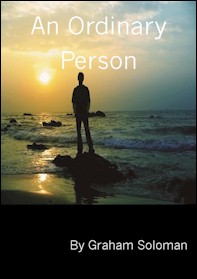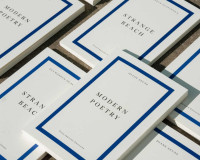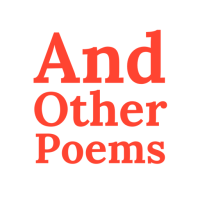Reply to a bad review
firstwriter.com – Thursday August 20, 2015
In the years that we've been publishing our Writers' Handbook and other titles we've been pleased to get a lot of good reviews: previous editions score averages of four stars on Amazon, and an amazing 70% of reviewers for our 2015 edition gave it the maximum score: five out of five. Customers have called it "excellent", a "wonderful book" and "a must have for writers" – but, inevitably, amongst the generally positive reviews there are also the occasional negative ones. This is only to be expected, of course – you can't please all of the people all of the time – but it can be frustrating when the criticism comes not from a fault with the book, but a customer's misunderstanding of the intent. This isn't the customer's fault, of course – it identifies that, in that instance, we've failed to adequately communicate the reasons for the choices that have been made.
So, in this article, we're going to try and redress that balance by explaining some of those reasons. To do this, we're going to offer some responses to criticisms left in particular by a user on the UK version of Amazon, who goes under the moniker of "Montaillou" of London. Before we do so, however, we'd like to thank Montaillou for the time he took over his detailed analysis, which is invaluable in helping us to understand where we need to improve our communication about the book.
Montaillou's first criticism is that the book is not comprehensive – that he could search for lots of well known publishers and find that they weren't there.
This is true, but that is because comprehensiveness was never something we were aiming for. When we looked at other books of this kind being published by other publishers we realised that every year people were buying a large, expensive book, the vast majority of which was absolutely identical to the large, expensive book they bought the previous year. We asked ourselves: what's the point in having to pay for the same content over and over again?
We also found that even though people were having to pay for the content over and over again, the currency of it wasn't very good. The publishers weren't actually checking the information they were publishing. We found one listing in The Writers' & Artists' Yearbook (the bestselling directory of this kind in the UK) which had been incorrect for six years. They'd reprinted it in six different editions. That's six times they've sold that information to their customers, and it wasn't even right.
So we decided that we wanted our book to be smaller, cheaper, and focus on recently updated listings, so that it had better currency. Errors like the one in The Writers' & Artists' Yearbook couldn't happen in our handbook, because we only publish listings that we've actively independently checked and verified ourselves within the last 30 months. If we hadn't checked a listing for six years, we wouldn't publish it. Simple as that.
What this means is that when you buy a new edition of our handbook you get a lot of new material and a substantially different book to the previous year. In 2015, over 30% of the listings were brand new. In 2016, over 40% are new. There's therefore a lot more value in buying the new edition, but each edition only costs a little more than half of the price of the "comprehensive" books.
The obvious counter-argument to this is that if you only buy one edition you don't get comprehensive coverage – so that's why we give away free access to our full online database with every purchase. That way you still get access to the comprehensive coverage, but you're not having to pay for it.
Montaillou goes on to list well known publishers that aren't included in the 2015 edition, such as Penguin, and contrasts this to the fact that there are lots of other, less-well-known publishers included:
"the only reason I can think of for such a bizarre set of choices is that publishers were charged to have their details included, and many or most declined to play ball. That's pure speculation on my part; but the alternatives – sloppiness and laziness – are even worse..."
However, there is another alternative which Montaillou hasn't considered, or may not be aware of.
First, let's just be clear: no publisher is charged for being on our website or in our handbook. Nobody but a vanity publisher would pay, and the listings would be worthless.
The actual reason why it makes sense not to include publishers like Penguin is that publishers of that size simply don't accept submissions directly from authors. You have to go through a literary agent. Here's what Penguin say on their website:
"Our company policy is to not accept unsolicited manuscripts or synopses and we cannot enter into correspondence about unpublished work."
So providing Penguin's details to writers is a complete waste of time. They won't even enter into correspondence with you about your unpublished work. They won't even bother to tell you to get stuffed.
And yet, in The Writers' & Artists' Yearbook, they dedicate more than four whole pages of listings (bearing in mind that the average listing takes up only about one eighth of a page) to Penguin Random House and its imprints. What's the point? It's a ridiculous waste of time, paper, resources, and customers' money. We always knew that we definitely didn't want our book to be like that. What Montaillou interpreted as an inexplicable failure, is actually one of our book's great strengths.
That's not to say that we'd never include Penguin Random House in our handbook – the next time we update the listing it will go into the book the same as anything else – but the focus of our updating is always on providing writers with opportunities that they can actually act on. Montaillou criticises our inclusion of Logaston Press, a publisher of biographies and books on the rural West Midlands and mid and South Wales – but Logaston Press actually accepts submissions – in fact they welcome them – so for the small number of people writing biographies and books on the rural West Midlands and South Wales it is an extremely useful listing. But nobody can submit directly to Penguin, so a listing for them doesn't benefit anyone.
And then the final point is this: in the age of the internet, what is the point in providing contact details for publishers people already know about? If you want to know how to contact Penguin you can put "contact penguin books" into Google and the first page it brings up includes addresses to Penguin offices all around the world. It only takes a few seconds. There would be no point buying a book to tell you that. The only purpose a book like ours can serve in the internet age is to tell you about those publishers you don't know exist.
Publishers, perhaps, like Logaston Press... or BlazeVOX [books]. Never heard of them? Nor had we – but they accept submissions of poetry, fiction, and nonfiction, and you can find their details, and the details of many more like them, in the 2016 edition of our Writers' Handbook.




 How to write a book review
How to write a book review The one-man-band literary review that’s outpacing the monthly magazines
The one-man-band literary review that’s outpacing the monthly magazines How I got a literary agent - An interview with author Adrienne Schwartz
How I got a literary agent - An interview with author Adrienne Schwartz How I got a publishing deal - An interview with author, Rachel North
How I got a publishing deal - An interview with author, Rachel North How I got a literary agent - An interview with author, Graham Soloman
How I got a literary agent - An interview with author, Graham Soloman Promotional tips
Promotional tips How to get top-selling agents' attention
How to get top-selling agents' attention How I got a literary agent - An interview with author, Eric Houghton
How I got a literary agent - An interview with author, Eric Houghton How I got my book published - An interview with author, Marion Grace Woolley
How I got my book published - An interview with author, Marion Grace Woolley How I got a publisher - An interview with author, Paul Edwards
How I got a publisher - An interview with author, Paul Edwards The dos and don’ts of obtaining a screenwriting agent
The dos and don’ts of obtaining a screenwriting agent How I got a literary agent - An interview with author Rob Riley
How I got a literary agent - An interview with author Rob Riley My path to publication
My path to publication Beginning your book's publicity plan
Beginning your book's publicity plan New Literary Agent Listing: Gabrielle Demblon
New Literary Agent Listing: Gabrielle Demblon Reading Force is delighted to welcome submissions from adults, children and young people to its 2025 Memoir Writing Competition
Reading Force is delighted to welcome submissions from adults, children and young people to its 2025 Memoir Writing Competition New Publisher Listing: Cicada
New Publisher Listing: Cicada Calling all aspiring authors! Here's your chance to win a one-to-one session with a literary agent - plus £1,500
Calling all aspiring authors! Here's your chance to win a one-to-one session with a literary agent - plus £1,500 New prize for translated poetry aims to tap into boom for international-language writing
New prize for translated poetry aims to tap into boom for international-language writing New Literary Agent Listing: Kaylyn Aldridge
New Literary Agent Listing: Kaylyn Aldridge TikTok parent ByteDance is shutting down its short-lived book publisher
TikTok parent ByteDance is shutting down its short-lived book publisher New Magazine Listing: And Other Poems
New Magazine Listing: And Other Poems New Literary Agent Listing: Helen Lane
New Literary Agent Listing: Helen Lane UK audiobook revenue up by almost a third last year
UK audiobook revenue up by almost a third last year New Publisher Listing: Radio Society of Great Britain
New Publisher Listing: Radio Society of Great Britain New Magazine Listing: Emerge Literary Journal
New Magazine Listing: Emerge Literary Journal New Literary Agency Listing: Ghosh Literary
New Literary Agency Listing: Ghosh Literary New Publisher Listing: Hardie Grant
New Publisher Listing: Hardie Grant
